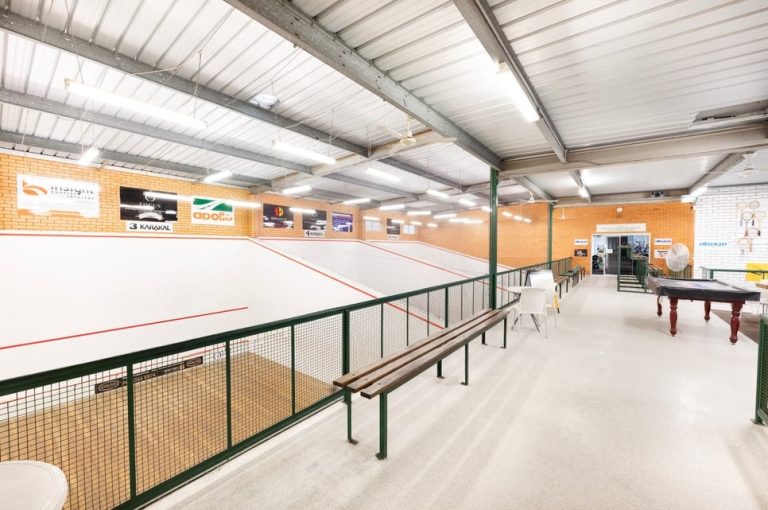Blueprint to investing in commercial property

Commercial property’s high yields and strong returns are great reasons to begin a commercial portfolio.
But investors will need a strong knowledge of the overall economy along with a high deposit and a back-up budget to strengthen cash flow during long vacancy periods.
Recent technology and societal changes, as well as COVID-19, have also changed the outlook of the commercial market.
What’s the difference between commercial and residential property investment?
Commercial property features higher loan deposits and interest rates, longer lease periods and fewer financial outgoings than its residential counterpart.
It’s therefore crucial for even highly experienced residential buyers to familiarise themselves with this sector.
“In 2021, there are a lot of Mum and Dad investors looking at investing in commercial real estate … as all the wealthy people seem to own some,” Metropole CEO and founder, Michael Yardney, said.
“But while most people understand a little bit about residential real estate, these first-time investors don’t know much about commercial property.”
What are the benefits of commercial property investment?

Commercial tenants pay all outgoings and costs including rates, taxes, insurance and general maintenance. Picture: Getty
Commercial property gives investors the potential to enjoy high returns and a relatively stable income, thanks to longer leases.
Fewer overall maintenance costs and less management are also great bonuses.
1. High yields and strong returns
“There are stronger, higher yields in commercial property, compared to residential real estate where rents haven’t gone up much but values have and so the yields have gone down,” Mr Yardney explained.
Commercial yields can range from 4.4% for a Sydney CBD office to 7.7% for a prime format retail property in Canberra, according to CBRE data from the first quarter of 2021.
“There is generally a greater return on commercial investing than residential investing,” Herron Todd White commercial director, Alistair Weir, explained.
Mr Weir added that commercial property also offered investors the opportunity to easily value add to their portfolio while also enjoying good depreciation allowances.
2. Longer lease
Commercial properties’ long leases almost guarantee a stable income stream.
“With commercial property, you get longer leases, which last three or sometimes five years, and even longer,” Mr Yardney explained.
“So, investors see potential stability and a lack of risk in this.”
3. Less management and limited outgoings
Another bonus to commercial property is that tenants pay all outgoings and costs, including rates, taxes, insurance and general maintenance.
With commercial tenants conducting their business from the property, they tended to look after it more and better than their residential counterparts, resulting in an investment that was far less management intensive, according to Mr Yardney.
What are the disadvantages of commercial property investment?

Commercial investors need to count their pennies before heading to the bank with a 30% deposit required. Picture: Getty
While commercial properties enjoy strong yields, they are also riskier investments, with their success depending to a large extent on the overall economy.
Commercial investors also need a high loan deposit while commercial tenants are harder to secure.
1. Higher deposit
The above risks are why banks usually only lend 70% of a commercial property’s value, according to Mr Yardney.
In comparison, residential investors can borrow 80% of a property’s value or even 90% with lender’s mortgage insurance [LMI], he said.
He added that interest rates are also usually higher than residential, varying from 0.5%-0.75%.
2. Tenants harder to acquire
“The depth of the commercial tenancy market is thinner than that of residential so there is the potential for greater cash flow ‘holes’,” Mr Weir observed.
Mr Burston concurred, explaining that it can take awhile to find commercial tenants.
“In the residential market, it’s generally just a matter of adjusting the rent up or down to get a tenant relatively quickly, but it can take a little bit longer in commercial markets,” Mr Burston said.
This can in turn can result in longer vacancy periods, which may outweigh the bonus of a stable income during a commercial property’s extensive lease.
Factors to consider when buying commercial property
1. Location
With commercial tenants difficult to acquire, location is doubly important when it comes to investment.
“Look for buildings that offer you not only strong income returns now but also the prospects of growth in the future, and the prospect of being able to lease it again when tenants move out,” Mr Burston said.
He added that good locations will differ depending on what type of property you purchase.
“For offices, you’re generally talking about the commercial hubs or networks that are going to be attractive to businesses to set up their premises there, and that’s largely the same for retail,” he said.
“Smaller retailers will want locations that are attractive and places that are vibrant with a strong level of passing foot traffic and that’s well connected to transport, as well being well established with a predictable pattern of customer demand.
“For industrial, you just want to be in a market with a solid level of activity and business.”
2. State of the economy

Commercial investors should have a thorough knowledge and understanding of the overall state of the economy. Picture: Getty
COVID-19 changed the outlook of commercial property in 2020 with the industrial sector now soaring in value and smaller retail strip shops stumbling while remote work is seeing offices remaining relatively stable.
However, industry experts believe the current changes began long before the pandemic arrived and is largely based on people’s shopping habits evolving in line with an increasingly online world.
“Even before COVID, retail values were falling … and office and industrial sectors were doing very well,” Mr Burston said.
Along with COVID-19, it’s crucial for commercial investors to have a thorough knowledge and understanding of the overall state of the economy.
“Residential real estate is cyclical but commercial real estate works on different cycles and is more dependent on general economic factors,” Mr Yardney said.







